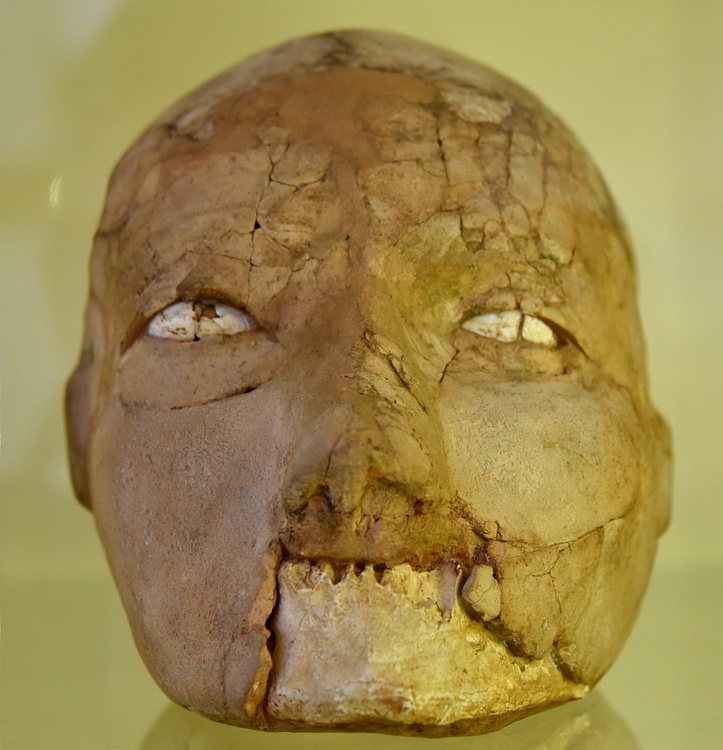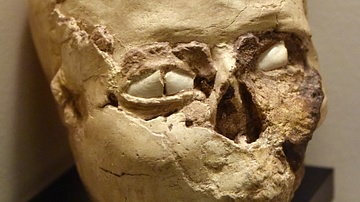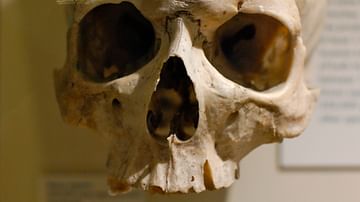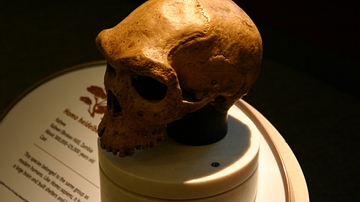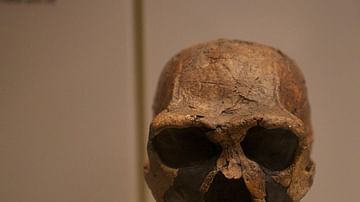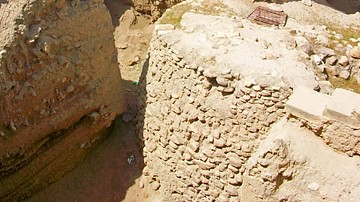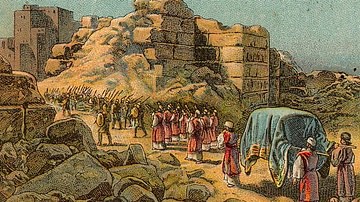Illustration
This human skull and its face were modeled in plaster. The eye sockets were inlaid with bivalve shells, divided into two halves. Many human bodies were found headless in tombs in Jericho area from the Neolithic period; these skulls were removed to be used for religious purposes, probably for rituals related to ancestors cult. Pre-pottery Neolithic B, 8200-7500 BCE. From Jericho, the West Bank, modern-day Palestinian Territory. (Jordan Archaeological Museum, Amman, Jordan).
Cite This Work
APA Style
Amin, O. S. M. (2018, April 05). Plastered Skull from Jericho. World History Encyclopedia. Retrieved from https://www.worldhistory.org/image/8513/plastered-skull-from-jericho/
Chicago Style
Amin, Osama Shukir Muhammed. "Plastered Skull from Jericho." World History Encyclopedia. Last modified April 05, 2018. https://www.worldhistory.org/image/8513/plastered-skull-from-jericho/.
MLA Style
Amin, Osama Shukir Muhammed. "Plastered Skull from Jericho." World History Encyclopedia. World History Encyclopedia, 05 Apr 2018. Web. 18 Apr 2024.
